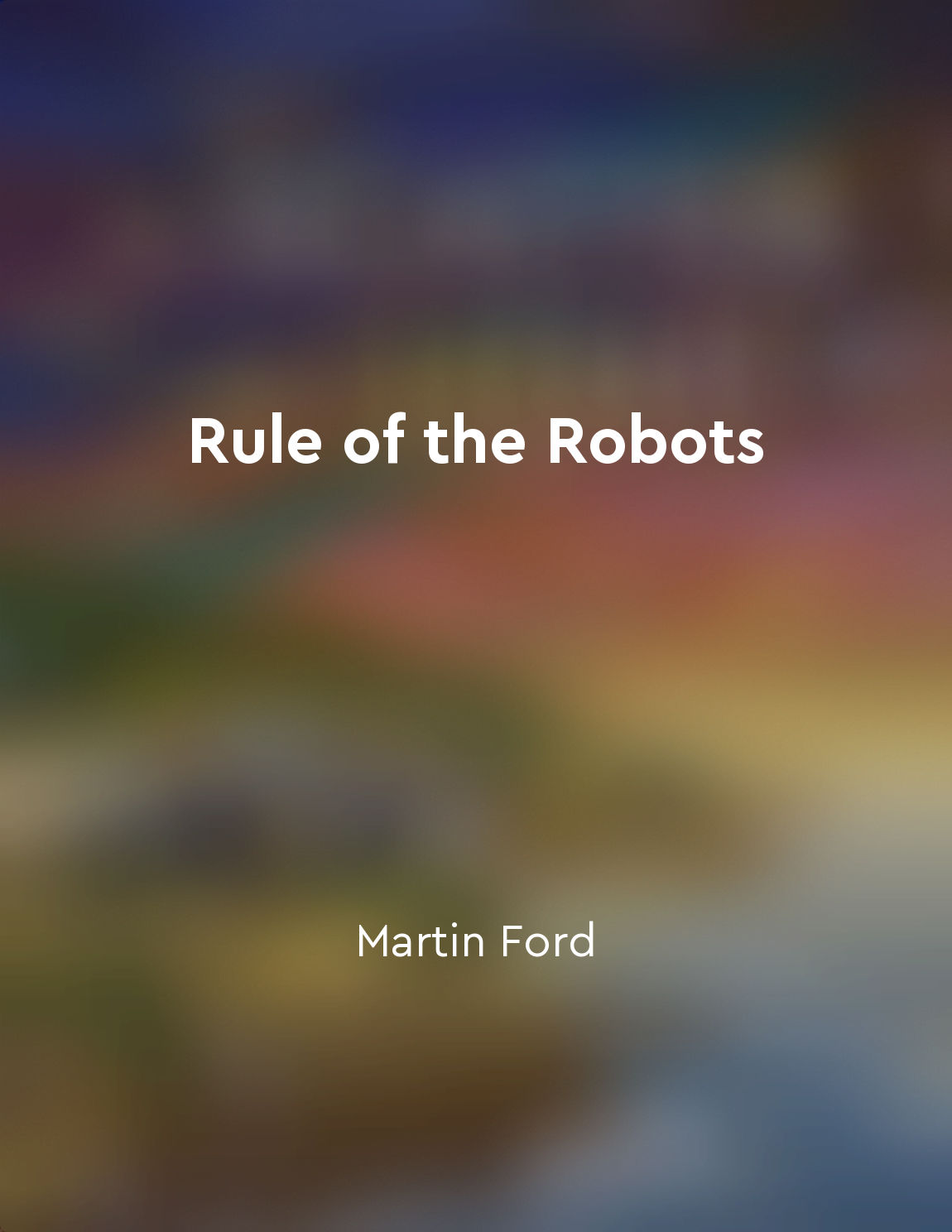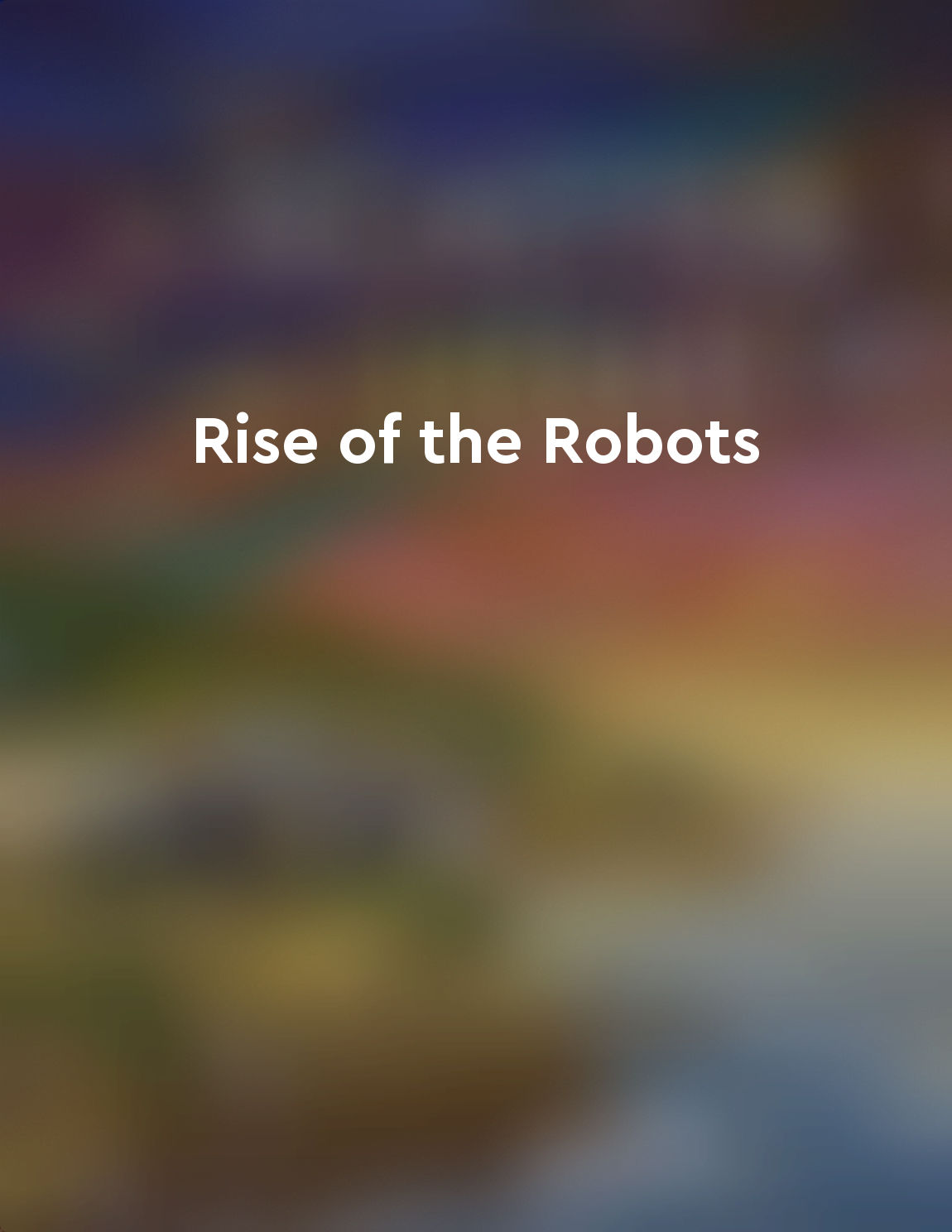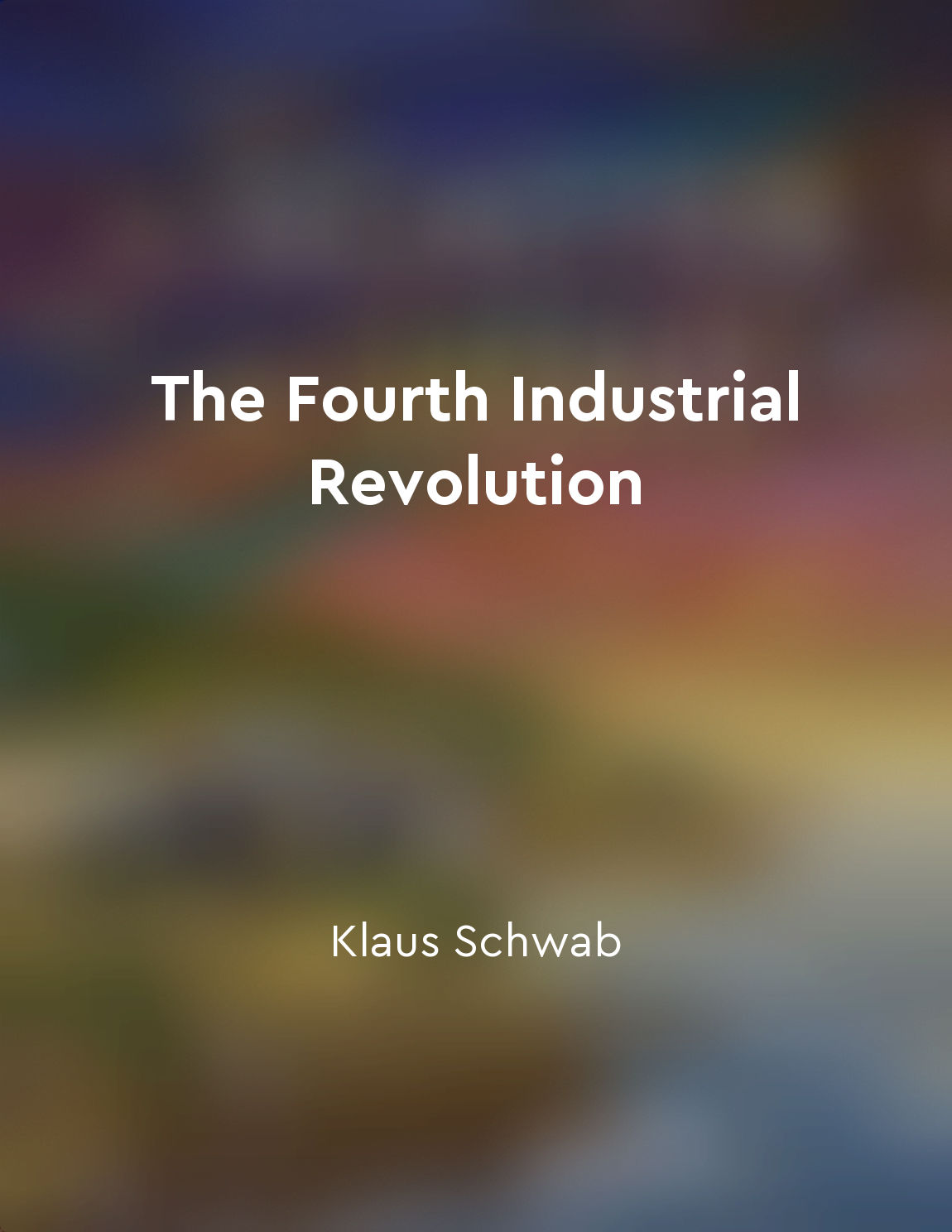Humans must find ways to work alongside robots rather than being replaced by them from "summary" of Rule of the Robots by Martin Ford
The central idea put forth in 'Rule of the Robots' is that humans must adapt to the increasing presence of robots in the workforce. Rather than fearing that robots will completely replace human workers, the focus should be on finding ways for humans and robots to collaborate and work together effectively. This concept is crucial in navigating the changing landscape of the job market in a world where automation is becoming more prevalent. By acknowledging the importance of humans in the workforce and recognizing the unique skills and capabilities that they bring to the table, it becomes clear that there is a need for a shift in mindset. Instead of viewing robots as a threat, humans should see them as tools that can enhance their own abilities and productivity. This requires a willingness to embrace new technologies and adapt to new ways of working. One of the key points made in the book is that humans have the capacity for creativity, emotional intelligence, and critical thinking, which are attributes that robots lack. These human qualities are essential in many industries and cannot be replicated by machines. By focusing on developing these skills, humans can differentiate themselves from robots and carve out a niche in the workforce. In order to successfully work alongside robots, humans must also be willing to continuously learn and upskill. This means being open to acquiring new knowledge and competencies that will allow them to stay relevant in a rapidly changing job market. By being proactive about their own professional development, humans can ensure that they remain valuable assets in the face of automation.- The idea of humans working alongside robots is not about competition, but rather about collaboration. By recognizing the strengths and weaknesses of both humans and robots, it becomes clear that there is potential for synergy when the two work together. This concept is crucial in ensuring that humans can thrive in an increasingly automated world and continue to contribute meaningfully to the workforce.
Similar Posts
Vertical progress is more important than horizontal progress
Horizontal progress means copying things that work – going from 1 to n. It's easy to copy things that already exist, but it rar...
Cybersecurity is a growing concern with smart machines
In the era of smart machines, the issue of cybersecurity looms large. As these machines become more integrated into our daily l...

Society must find ways to support workers affected by automation
As technology continues to advance at an unprecedented pace, the impact on the workforce is becoming increasingly apparent. Aut...

Robots are capable of performing tasks with greater efficiency and precision than humans
In today's world, robots have proven themselves to be incredibly efficient and precise in performing a wide range of tasks. The...

Remember that humanity is the ultimate goal
In a world increasingly dominated by technology, it is crucial to keep in mind that the ultimate goal should always be centered...

Embracing change and adapting to new technologies is essential for future success
The Fourth Industrial Revolution emphasizes the critical need for individuals and organizations to remain flexible and open-min...

The need for continuous learning and adaptability is greater than ever
As technology continues to advance at an exponential rate, the skills required in the workforce are constantly evolving. In tod...

Sustainability must be prioritized to address the environmental impact of technological advancements
As we navigate the Fourth Industrial Revolution, it has become increasingly evident that the environmental impact of technologi...

